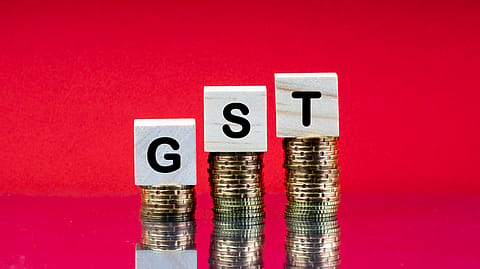28% GST on online gaming: Top Indian, foreign investors urge PM Modi to roll back decision
Investors rue the latest decision to impose proposed GST on 'full value of bets' will increase tax burden by 1,100%, and 50-70% of every rupee will go towards GST, making biz model “unviable”

Indian and foreign investors in the online gaming industry have submitted a detailed representation to Prime Minister Narendra Modi, urging the Centre to roll back the GST Council's recent decision to levy a 28% tax on online gaming operators. The investors say the decision has caused "shock and dismay" in the online gaming industry, which will "erode investor confidence" in this sunrise sector in the Indian tech ecosystem.
The investors, via the letter, say the decision of the 50th GST Council has the “unintended consequences” of equating the constitutionally protected legitimate online skill gaming industry with gambling, betting, and other "games of chances".
"The current GST proposal will set up the most onerous tax regime for the gaming sector globally, which will lead to a potential write-off of the $2.5 billion capital invested in this sector," say the investors.
The move, they claim, will adversely impact prospective investments to the tune of at least $4 billion in the next 3-4 years and hence the growth of the gaming sector in India.
The Indian and India-focused funds who have made the presentation include ChrysCapital, Kalaari Capital, Peak XV Partners, Benett, Coleman & Company, Orios Venture Partners, Matrix Partners India, Cepean Capital, Malabar Investments, Smile Group, Lumikai, and Kotak Private Equity. Foreign investors include Tiger Global, Think Investments, Steadview Capital Management, Clairview Group, Tribe Capital, Republic Group, West Cap, AJ Capital, Tomalese Bay, GST Global, RedBird Capital, Alpha Wave, Argor Capital, CE Venture, RTP Global, The Raine Group, Lagatum, MSA Novo and Telstra Ventures.
The current representation comes after the last week’s request by 127 industry players to the government to revisit the move, saying it could “hurt” the industry at large.
The GST Council, in its 50th meeting on July 12, decided to tax online gaming, horse racing, and casino services at a uniform rate of 28%. The new tax rate will be applicable on the "face value" of the chips purchased in casinos, on the "full value of the bets" placed with bookmakers in the case of horse racing, and on the "full value of the bets" placed during online gaming, according to the GST Council.
"We invested in this sector with the vision to make India the gaming capital of the world, which would help in generating, among other things, high-skilled jobs, billions in foreign capital, and make the country an exporter of innovation in gaming and allied areas such as animation, artificial intelligence, and visual effects," the investor community’s letter reads.
Requesting Prime Minister’s attention towards the matter, the investor community says the government must "examine" three major points and suggestions. Firstly, it says: "If 'full value of bets' is understood in a manner where GST is levied on every contest played every time, with fully taxed winning, the GST burden will increase by 1,100% on account of taxation of redeveloped player winnings, the same money will get taxed repeatedly resulting in a scenario where 50-70% of every rupee will go towards GST, making the online real money skill gaming business model unviable. This would lead to write off of investments made and would hurt the investor confidence".
Secondly, if the "full value of bets" for the purpose of levy of GST on online gaming, is the “full deposit value” i.e. deposits made by users and not taxed again if the winnings are redeployed to play a game (at par with casinos), there will be a 350% increase in the GST burden, they add. "This will lead to the closure of most gaming startups and will require major restructuring across the industry to survive."
Thirdly, if 28% GST is to be levied on the Gross Gaming Revenue/platform fees, there would be a 55% increase in GST quantum, they suggest. "This would ensure that Indian online gaming operators are able to survive and are able to be key contributors to the Indian economy. In addition, such a suggestion of levying GST on GGR would be in line with internationally accepted and proven practices".
(INR CR)